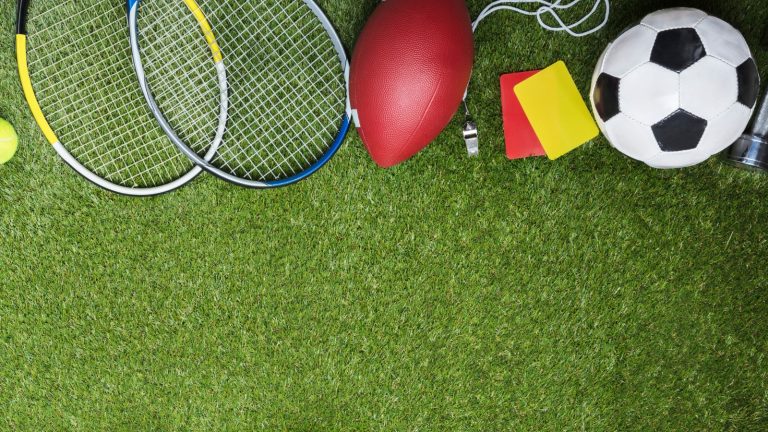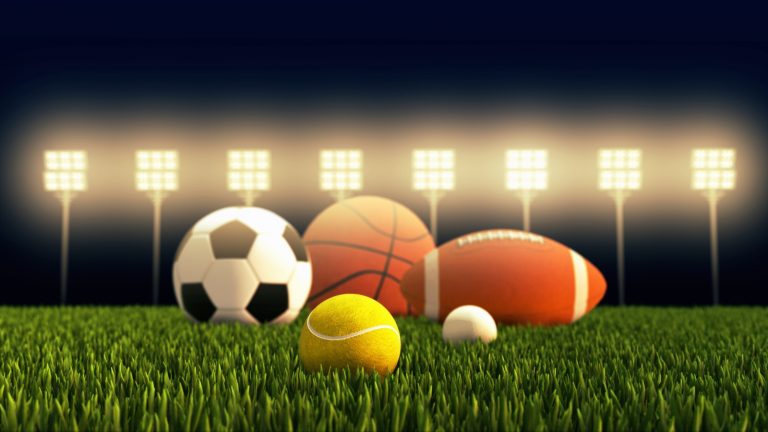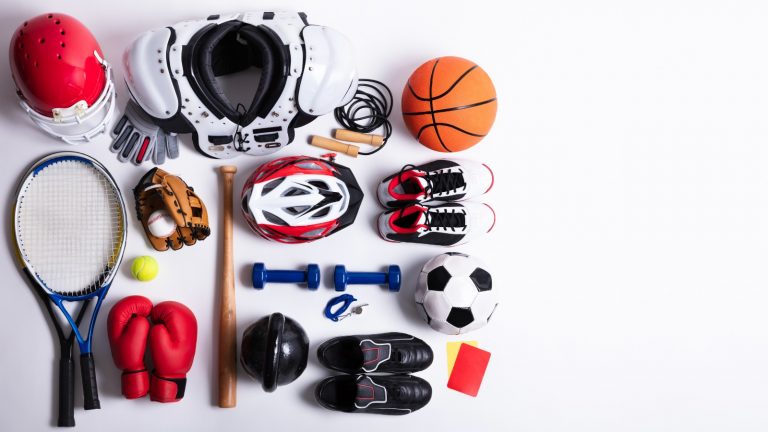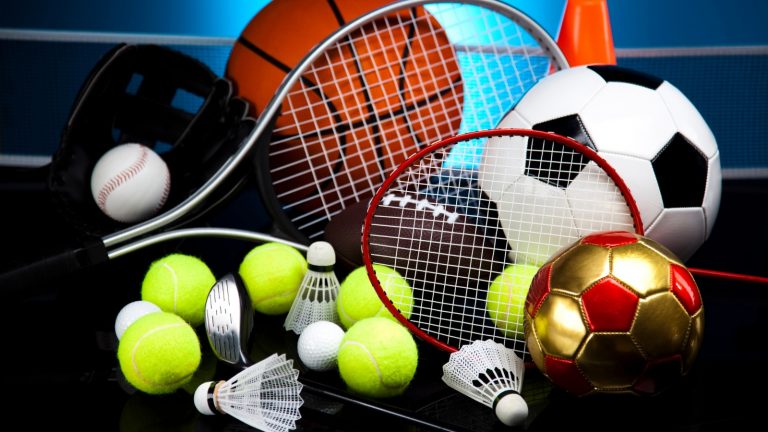Artificial Intelligence or AI has been going around society for some time now, and many industries have started a ‘Smart’ business journey employing robust AI tools. The beauty of this AI is that it can serve you the best outcome, reducing time by up to 200%. When other industries are witnessing such beneficial situations with AI’s capabilities, why would the sports equipment manufacturing industry stay away from employing them?
In today’s article, this will be our main focus, as we will discuss everything about the implementation of AI tools in the sports equipment manufacturing industry in Singapore.
What is Artificial Intelligence?

Before digging deeper holes, we should know more about AI. It describes the process of simulating human intelligence in computers so that those machines can carry out tasks that normally require human mental abilities.
It includes the creation of algorithms and systems with the ability to evaluate data, draw conclusions from it, and forecast or make conclusions. Artificial Intelligence covers several subfields, including robotics, computer vision, natural language processing, deep learning, and machine learning.
Machine learning and deep learning play key players’ roles when it comes to AI functioning, as they help systems improve their performance over time by learning from massive data patterns.
The power of AI cannot be limited to one or a few industries, as it covers everything from healthcare to finance, encouraging automation, problem-solving, decision-making, and enhancing efficiency. If you see AI in today’s market as unbeatable, let us tell you that the development of these AI tools is unstoppable. Its ongoing evolution will keep encouraging innovation and influence how technology and human-machine interactions develop in the future.
The best thing about this is that Artificial Intelligence couples with diverse technologies such as Digital Twin, Data Analytics, IoT, etc., empowering their capabilities.
The Top 5 Ways AI Applications Revolutionise Sports Equipment Manufacturing

Product Design Optimisation
This is one of the main ways that sports equipment manufacturers utilise AI tools for their business operations. AI analyses large datasets, such as athlete performance measurements, material qualities, and user input, to transform the design and production process in the sports equipment manufacturing sector.
Machine learning algorithms process this data, identifying patterns and preferences to optimise designs. Let us elaborate more deeply. When realistically evaluating multiple setups to improve performance, durability, and design, AI-driven simulations help in fast development without giving chances for waste. This approach minimises failure during the development stage by optimising designs.
Since AI conveniently integrates with predictive analytics, it helps manufacturers forecast market trends while guiding the creation of products aligned with evolving consumer demands. AI makes it possible for athletes to get customised equipment to meet their unique requirements, which will help their brand reputation as well.
The integration of AI into product design has the potential to optimise the innovation cycle and accelerate the development of modern sports equipment that blends the time it takes to market with optimal performance.
Quality Control and Inspection
Quality control receives much focus, no matter what the industry is. When it comes to the sports equipment industry, there are several guidelines and standards to follow when keeping up with quality inspection. But how does this occur? It is not that complicated, as the AI easily integrates with cameras and image recognition techniques to screen the products at an unparalleled speed and accuracy.
AI algorithms examine visual data to find flaws or abnormalities in the materials, structure, and finishing. With the use of huge amounts of data on both suitable and unsafe goods the factories produce, machine learning models are able to detect small defects that are usually invisible to the human eye.
This lowers human error and manufacturing barriers while improving inspection quality and consistency. You do not need to worry about the quality of sports productions, as throughout the whole manufacturing line, this ongoing real-time monitoring makes sure that quality criteria are being met.
Also, AI-powered predictive maintenance detects problems with machines while preventing production interruptions in advance. Sports equipment must fulfil strict quality standards before it can be sold to customers, which means that the integration of AI in quality control is quite beneficial in this industry.
Material Selection and Testing
The best benefit of AI in this sector is when it comes to how predictive modelling and data analytics are being used to alter material selection and testing in the manufacture of sports equipment. After analysing large material datasets, machine learning algorithms can easily evaluate aspects like weight, durability, flexibility, and airflow.
This analysis takes performance, safety, and manufacturing feasibility into account to help pick the best materials or combinations for a particular piece of equipment. AI-powered simulations inspect the behaviours of materials under many circumstances, which ultimately speed up testing procedures and precisely forecast performance results after release to the market.
Another outstanding performance of AI is the integrated sensor technologies that gather data from prototypes in real time and then go into AI systems for some adaptive improvements. This synergy improves the innovation cycle by empowering manufacturers to use better materials, get the designs done quickly, and accelerate the testing stage.
Considering all the aspects of the process, you may see that AI’s contribution to material testing and selection optimises sports equipment development, enhancing the performance and longevity of the products.
Process Automation
It no longer needs to rely on the manual handling of the process when the sports equipment manufacturing industry is powered to automate it by utilising AI. Let us explain how this occurs. Since AI-enabled systems show some outstanding integration with machinery, they can streamline workflows and optimise operational efficiency. AI-driven robots and robotics save manual labour and manufacturing time by efficiently and consistently handling repetitive activities like moulding, cutting, and assembling components.
On the one hand, AI predictive analytics evaluates maintenance requirements, minimising downtime and ensuring continuous production. On the other hand, AI-pioneered supply chain management enhancements look into sufficient raw materials and effective distribution by optimising inventories, procurement, and logistics. This way, all the aspects are fully covered.
It is evident that the combination of AI with process automation improves quality control by constantly monitoring and modifying manufacturing settings while also speeding up production. As you can witness, AI’s contribution to process automation totally transforms the manufacturing of sports equipment by giving this advantage to the end user through price reduction and maintaining top quality.
Customer Insights and Market Trends
Machine learning algorithms coupled with AI conveniently process consumer behaviour data, including online interactions, purchase histories, and social media sentiment analysis, when it comes to the sports equipment trade. This helps manufacturers figure out what kinds of products customers want, predict changes in demand, and adjust their product lines appropriately.
The end result is that, with the help of AI-driven predictive analytics, companies can forecast market trends and adapt their designs, features, and marketing strategies swiftly according to the insights they receive. AI-driven recommendation systems also customise products, which boosts customer retention and engagement slowly but steadily through various strategies. Also, as the AI can offer sentiment analysis, this makes it easier to understand customer input and leads to adaptive product enhancements accordingly.
Product Design Optimisation
This is one of the main ways that sports equipment manufacturers utilise AI tools for their business operations. AI analyses large datasets, such as athlete performance measurements, material qualities, and user input, to transform the design and production process in the sports equipment manufacturing sector.
Machine learning algorithms process this data, identifying patterns and preferences to optimise designs. Let us elaborate more deeply. When realistically evaluating multiple setups to improve performance, durability, and design, AI-driven simulations help in fast development without giving chances for waste. This approach minimises failure during the development stage by optimising designs.
Since AI conveniently integrates with predictive analytics, it helps manufacturers forecast market trends while guiding the creation of products aligned with evolving consumer demands. AI makes it possible for athletes to get customised equipment to meet their unique requirements, which will help their brand reputation as well.
The integration of AI into product design has the potential to optimise the innovation cycle and accelerate the development of modern sports equipment that blends the time it takes to market with optimal performance.
Cerexio Pioneered AI Technology

Cerexio AI-driven solutions offer diverse modules and tools, from chatbots to predictive analytics, ensuring precise and reliable task completion. Its licensed software enhances responsiveness and efficiency using a variety of integrated AI technologies, such as virtual assistants, monitoring systems, and geographic mapping.
High Adaptability with AI for Sports Equipment Manufacturers

It is totally unnecessary to spend a lot of time and money on manual processes in sports equipment manufacturing when you can simplify them using robust technology like AI. However, a little research on the desired tools and the reputation of the supplier must receive a lot of attention before making a wise decision.
